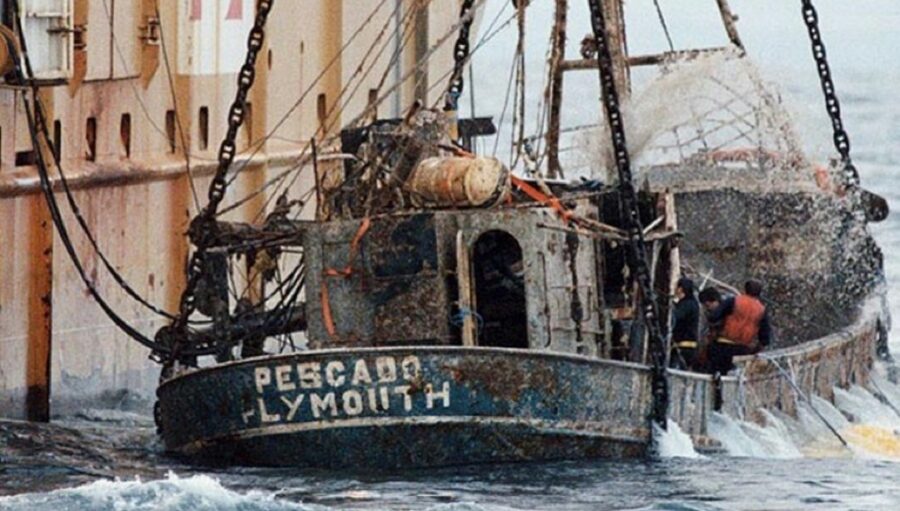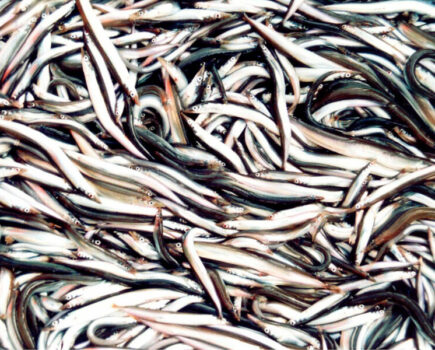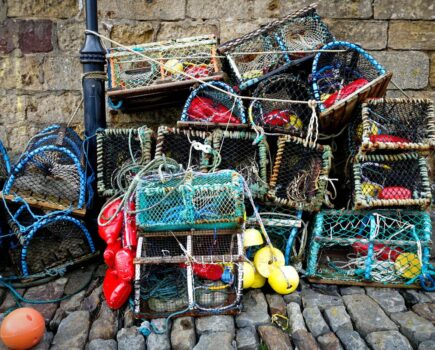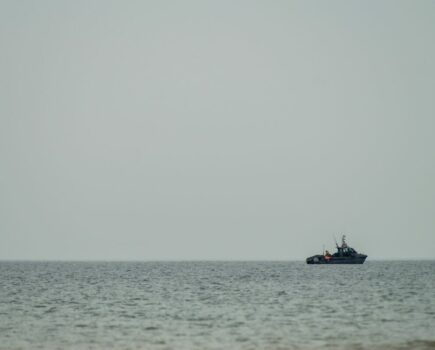The co-owner of the Plymouth-registered beam trawler Pescado that sank 25 years ago with the loss of all her six crew believes the vessel was sunk by a submarine and is trying to get a judicial review of the case, reports Tim Oliver.
Alan Ayres co-owned the 70ft Pescado with Joe O’Connor. He hopes that evidence to be submitted at a coroner’s inquest into two crewmen who died when the French trawler Bugaled Briezh sank off The Lizard in January 2004 will strengthen his case.
The families of the Bugaled Briezh crew have always argued that the trawler was sunk by a submarine. French judges, after lengthy investigations, said that was probably what happened. A NATO military exercise, ‘Thursday War’, was taking place at the time. The MoD has consistently said that no Royal Navy submarine was involved in the sinking.
A coroner’s inquest is to be held on two of the crew members because their bodies were found on the Cornish shore. All the crew died. A preliminary hearing is scheduled for 12 April and a full hearing before a jury is provisionally due to take place in Truro Coroner’s court on 18 July. Cornwall Coroner Emily Carlyon has set aside 10 days for the hearing.
Lawyer Charles Hattersley, of Plymouth solicitors Ashdowns, is acting for the owner of Bugaled Briezh, and the families of the lost crewmen have separate representation. He also acted for one of the families during the Pescado trial.
“The Bugaled Briezh went down 12 years ago and the case has gone through the French courts but nothing much seems to have happened,” he told Fishing News.
“It’s a mysterious case – the boat sank very quickly, she went down in about two minutes. It’s a difficult case because a lot of the documentation is in French, but we will be doing our best for the owner.”
He said that defence during the Pescado trial was hampered by the MoD’s refusal to disclose vital information on the submarines in the area at the time, and a lack of resources because they were working on legal aid.
He is also in contact with Alan Ayres, who has never given up his fight to prove his belief that a submarine sank the Pescado. Alan Ayres said both vessels were lost in similar circumstances and the Bugaled Briezh inquest would have big implications for his campaign.
He claims the full truth surrounding Pescado’s sinking never came out because no inquest was held and evidence was suppressed when he faced trial over manslaughter charges. The judge discharged Mr Ayres and ordered the jury to find him not guilty. Co-owner Joe O’Connor was found not guilty, but the prosecution then brought another charge against him and he was found guilty. However, on appeal this verdict was subsequently overturned.
“I was denied an inquest into the Pescado sinking,” Alan Ayres told Fishing News. “I’m hoping a good result from the Bugaled Briezh inquest will help me to get a Judicial Review to reopen the case and get a proper inquest.
“A lot of witnesses will be called and I hope we get a proper shout from the coroner, Dr Emily Carlyon. Our ultimate hope is that we can prove to a jury, beyond all reasonable doubt, that they were unlawfully killed, rather than it being ‘accidental death’ – it will be a big case.
“I have evidence that Pescado was sunk by a submarine, but you have to be in a court to put that evidence forward. For the coroner to rule that there should not be an inquest was unbelievable.
“It’s 25 years ago, time rolls on and I’m 77 now, but I’ll never give up on this. I’m a miner’s son from Yorkshire so it must be that Yorkshire grit that keeps me going. I’ve got my own barristers and I’m going to apply for a Judicial Review.
“Ultimately this is all about fishermen’s lives – they have a tough enough time anyway without having to worry about being sunk by submarines.”
‘Full hearing needed to discover the truth’
Pescado sailed from Falmouth on 25 February 1991 and a search began for the vessel on 5 March after there had been no contact from her.
A wreck believed to be Pescado was found 13 miles off Dodman Point and this was confirmed after divers contracted by Alan Ayres filmed the wreck. Marks were found on the hull and samples taken by the divers. Alan Ayres said expert analysis confirmed they had been made by paint similar to that used on submarines.
The 1998 MAIB report said that the marks possibly came from the boat’s own gear rubbing the hull and found no evidence of a collision.
But Alan Ayres said that when MAIB officials were cross-examined at his trial in 1996 his barrister ‘tore their evidence to pieces’, but the MAIB report on the sinking published in 1998 ignored this.
“I found the boat, sent divers down with cameras, took samples, got the pictures. The MAIB came along afterwards and towed the gear all over the place. Then they got a scrap dealer from Scotland to try and raise it,” he said.
The MAIB report said that the probable cause of the loss of the Pescado was that the vessel had heeled over and sunk after its gear had become fast. This was based on the position of certain port side controls and wires observed on the deck of the vessel.
But Alan Ayres said that under questioning the MAIB had to admit that it was impossible to say if the fishing gear was entangled on the seabed when the Pescado sank, and that they had no evidence to prove the exact position of the gear on the seabed at the time of the sinking.
“The whole of the MAIB theory is totally flawed,” he said. “By the time the first underwater cameras looked at the gear on the seabed it had been trawled over repeatedly by more than one other fishing vessel, one of which left part of its own net over the Pescado’s gear.
“Furthermore the MAIB’s various attempts to locate the position of the wreck involved their survey vessel dragging its own anchors across the Pescado’s gear while trying to maintain its position on the seabed.
“Independent experts in the court argued there was strong evidence to indicate that the Pescado’s fishing gear was stowed aboard and was not on the seabed at the time of sinking. There are a number of issues the MAIB has not fully addressed.”
Alan Ayres also claimed that the MAIB asked Devon and Cornwall police in 1993 to withhold evidence documents from his defence lawyers, three years before his trial took place.
“I believe this is one of the biggest cover-ups of all time, which will come out if we can get a full inquest.”
History of beam trawler Pescado
Pescado was a 73ft-long steel beam trawler, built in Zwolle in the Netherlands in 1956 and typical of many Dutch-built vessels of her era.
The vessel first came to the UK in the mid-1970s when she was purchased by an Isle of Man owner and registered as CT 107. A couple of years later the Kromhout-powered boat moved to Plymouth after being bought by local fisherman Clive Emerson.
Skipper Emerson used Pescado for a mixture of beam trawling and scalloping fishing around the south west, and further afield when necessary.
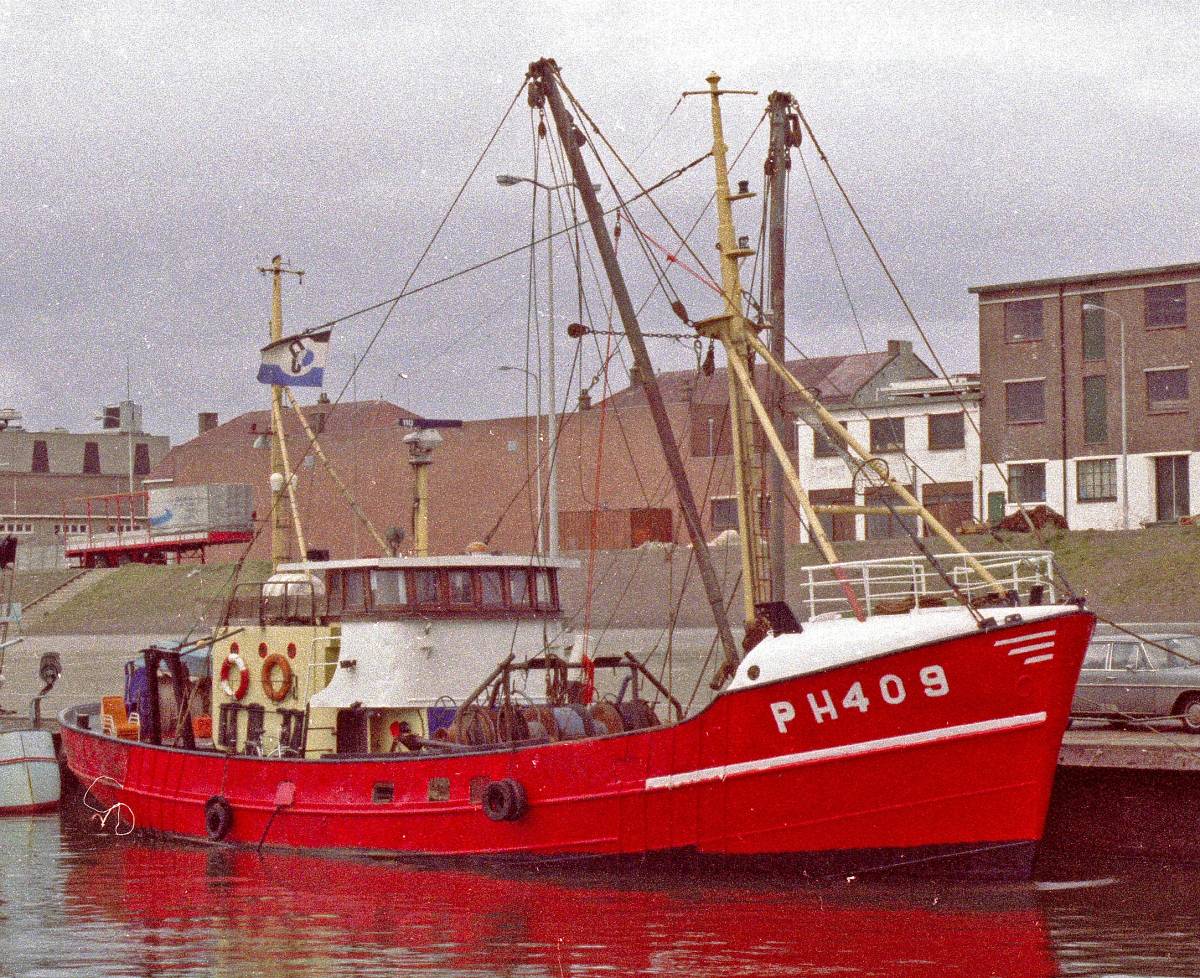
Pescado
In 1981 Pescado was driven ashore in Fishguard harbour during a storm and sank.
Once recovered the boat was bought back by Clive Emerson from her insurers and towed back to Plymouth where she was re-fitted and re-registered as PH 409.
Pescado was sold in 1983 to Dutchman, Ronald Snoek who took her back to the Netherlands where she was to be re-fitted with the intention of resuming fishing in the UK.
Eventually returning in 1987, when bought by Wherry Fish Selling, Pescado was laid up on the river Tamar and sold again in 1989 by receivers after her owner went bankrupt.
Purchased by Joe O’Connor, she was taken into Plymouth’s Millbay Docks, where she underwent a major refit and was re-engined in preparation for a return to fishing as a scalloper. It was then that her final owner, Alan Ayres became involved as a director of her ownership company, Guideday Ltd.
Read more from Fishing news here

